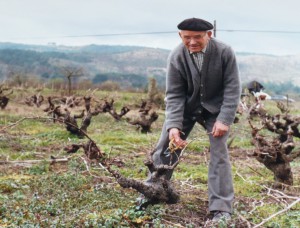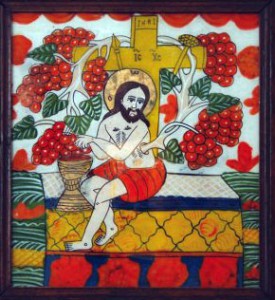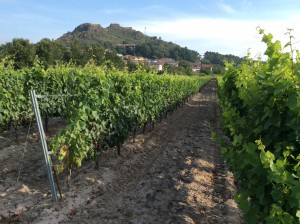A commentary on John 15,-18, Fifth Sunday of Easter, May 3
Last Sunday Jesus used the image of a Good Shepherd, connected to the culture of cattle raising; today he chooses an image connected to the culture of vine growers. Vine growing is not a universal culture, but it is spreading quickly to many parts of the world and wine is being increasingly consumed, even if many do not know the plant itself. Anyway, I think that it is not difficult for anybody to understand the deep meaning of this allegory that Jesus is telling us today, based on the culture of Israel and many other peoples in the world.
Let us proceed then on this allegory. To have grapes and wine, we need, apart from the land itself, three esential elements:
 1. The vine that carries new life
1. The vine that carries new life
Jesus compares Himself with the vine, and the Father with the wine grower who prunes the branches of the vine. Jesus, whose personality is rooted in the Father’s Love, gives life to new “branches”, “members of his body” (as Saint Paul says), called to bear plenty of fruit in communion with Him and with the Father.
Some people seem to think today that they can give fruit by themselves, as if they were the “autonomous” sources of life, as if the branches could grow without the vine or as if a vine could grow without a land and a grower. But the true disciples of Jesus know that without the caring Love of the Father given to us in Jesus Christ, the “vine” to which we are attached, our life becomes fruitless and it ends up in a useless fire.
Some seem to think also that the Church is little more than a social, political or humanitarian organization. But the Church is, in the first place and above all, the community of those specially related to God in Jesus Christ. Certainly, the Church is and does many things; it runs, for example, thousands of schools and hospitals and its ministry has many social economic, cultural and political effects… Certainly, but lets us not confuse the effects with the causes. The Church is, first of all, an space of faith and relationship with God the Father in Jesus Christ. If that faith disappears, all the rest will disappear sooner or later.
 2.- The branches that, springing up from the vine, bear fruit
2.- The branches that, springing up from the vine, bear fruit
Jesus says that we, his disciples and friends, are those “branches”. Saint Paul uses another expression, but the meaning is the same: We are members of his body. It is quite evident that the branches of a tree or the members of a body are nothing without the tree or the body. So to have life and bear fruit, we, the “branches”, have to avoid two dangers:
-To be broken and separated from the vine: I remember when I, as a young man, used to go with my father to the vineyard. We were very careful not to break the branches. If that happened, we knew that we have just lost part of the fruit we were so eager to receive from that vine. That is what is actually happening to us, when by unconsciousness or pride, we separate ourselves from Jesus Christ, thinking maybe that we are strong enough to do important things by ourselves. If we fall into that temptation, we become fruitless. It is essential to remain united to Jesus Christ with our love, the reading of his words, the obedience to his mandates, the communion with his disciples and the openness to his Spirit.
-To forget the pruning. Winegrowers know very well that a vine that is not pruned becomes very soon old and fruitless. I remember a vine that we had in one of our communities: left without pruning for a few years, became fruitless and is was set for death. When we decided to prune it adequately, it began quite soon to renew itself and give good fruit. The meaning of this allegory is quite clear, if we do not prefer to look to another side: A life “abandoned”, not “pruned” becomes chaotic and fruitless. We all know how athletes and musicians, among many others, need a lot of discipline to make progress. The same happens with our life and our discipleship. We need the decision to be disciples, but, besides, we need to be pruned by the Father through prayer, Bible reading, good counselling, openness to the Spirit…
 3.- The fruit: the wine, that can transform a sad life into a feast banquet, like in Cana.
3.- The fruit: the wine, that can transform a sad life into a feast banquet, like in Cana.
We all wish to give fruit and to live happy and fruitful lives. But we must remember that fruits are not something artificially added to the branches of threes. Fruits do not come from the outer part, but from the inner one. I’s only the inner life of the tree that can assure the arrival of the fruit. In the same way, a disciple will give fruit, only if he or she has a rich inner life, in deep relationship with Jesus Christ, and if he or she allows himself to be constantly “pruned” and taken care of by the Father. If the disciple remains united to Jesus and the Father, He or she will give abundant fruits of goodness and generosity, peace and joy, humility and service… In short, of a new life rooted in Jesus Christ.
Fr. Antonio Villarino
Roma



